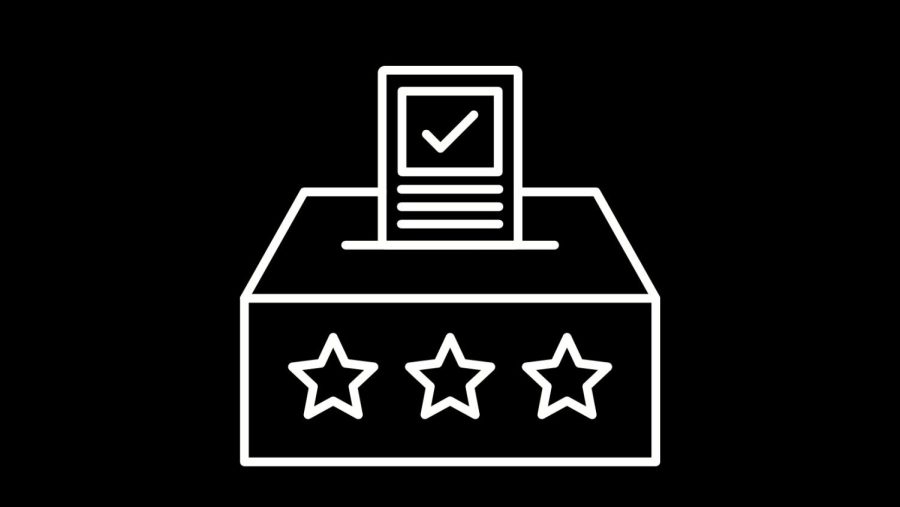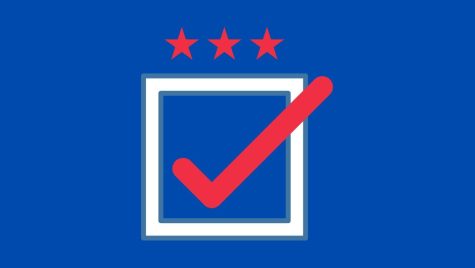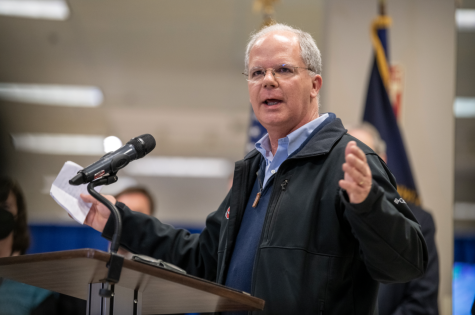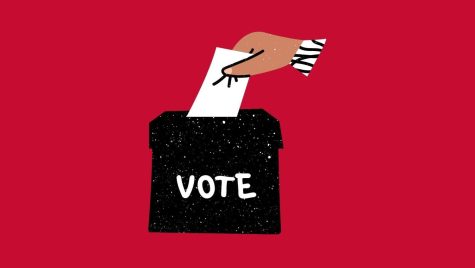Paul-Booker Senate race: A look at the candidates
October 18, 2022
Kentucky is among the nearly three dozen states holding elections for U.S. Senate seats that could sway the balance of power in the chamber.
Currently, the Democratic Party controls the Senate by a very thin margin with the chamber seats falling 50-50 to senators of both parties. Vice President Kamala Harris (D) is the tie-breaking vote, giving Democrats effectively a 51-50 majority.
Thirty-five of the 100 seats of the Senate are up for election this November, including one special election in Oklahoma. Fourteen of those 35 are currently filled by Democrats; 21 Republican-held seats are also up for election.
The Republicans can win the majority if they take one seat currently held by a Democrat while also holding on to all the Republican seats.
With the balance of the senate hinging on these 35 senate elections, there are many notable races to keep an eye on – from Georgia and Texas to Arizona and Florida.
Kentucky is also holding a notable Senate election between incumbent Rand Paul (R) and Charles Booker (D).
“[I]n every election every year, this year, and past years, it’s great to have terrific candidates,” Minority Leader Mitch McConnell (R-KY) said on Sept. 28 at the U.S. Capitol. “We’re in a bunch of close races. I think we have a 50/50 shot of getting the Senate back. It’s going to be really, really close either way, in my view.”
Paul, who is seeking his third term in the Senate, is a Libertarian-leaning Republican who won his May primary against five challengers. He defeated his challengers by receiving 86.3% of the vote, or 328,202 votes in total, according to data acquired by Ballotpedia. The remaining 13.7% was divided among the challengers, the highest of whom received only 3.6%.
Paul was first elected senator in 2010. He also ran unsuccessfully in the 2016 presidential primaries against fellow Republican Donald Trump.
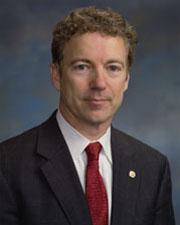
“Dr. Paul has proven to be an outspoken champion for constitutional liberties and fiscal responsibility,” Paul’s Senate website states. “As a fierce advocate against government overreach, Dr. Paul has fought tirelessly to return government to its limited, constitutional scope. As a hard-working and dedicated physician – not a career politician – Dr. Paul came to Washington to shake things up and to make a difference.”
On the issues, such as abortion, healthcare and economic issues, Paul follows the values of the Republican Party.
According to his website, he is “100% pro-life,” co-sponsoring numerous bills aimed at protecting the unborn including the Protect Life Act, the No Taxpayer Funding for Abortion Act and the Child Interstate Abortion Notification Act.
“I believe that life begins at conception, and the role of government is to protect the life and liberty of all Americans, born and unborn,” Paul said. “Overturning Roe v. Wade was a positive step in that direction. Now, state legislatures are empowered to use the democratic process to protect the life of unborn individuals.”
In terms of healthcare, Paul is against “Obamacare” that has “driven up” medical costs and led to over regulations.
“As a physician, I know firsthand the challenges facing families in getting the care they need in a broken healthcare marketplace,” Paul said. “Unfortunately, Obamacare has made the situation worse, driving up costs and limiting choices for millions of American families. I believe Obamacare should be repealed and Congress should legalize health care freedom and choice. Specifically, people should be free to choose the health care that best meets their needs and budget, not what is decided for them by Washington. health expenses by removing the high-deductible insurance policy requirement to access to Health Savings Accounts.”
Paul believes in a free market, where competition drives choices and prices, rather than the central government.
“Simply put, I believe that market forces like competition and free choice lead to the most efficient allocation of resources and bring costs down for you, the consumer,” Paul said via email. “We’ve seen the disastrous consequences of Democrat attempts to centrally plan our economy. Thanks to their socialist agenda, prices have soared to historic highs at the gas pump and in the grocery store.”
His challenger is former state lawmaker and Louisville-born Charles Booker, who returns after his unsuccessful Senate bid in 2020 against Amy McGrath (D).
Booker clinched his May primary by defeating three primary opponents with 211,047 votes, 73.1% of the total available.
Booker, a progressive Democrat, supports such policies as healthcare for all, a fully-funded public school system and a universal basic income.
“We’re actually going to lean in [to progressiveness],” Booker said in an interview on Kentucky Educational Television earlier this year. “This is not a time to be moderate. You cannot moderately put a fire out. We’re going to be bold in fighting for Kentucky, and the results are going to show that is how you win.”
A Type 1 diabetic himself, Booker believes the senate should pass Medicare for All that would “create a healthcare system that provides affordable care to every American.”
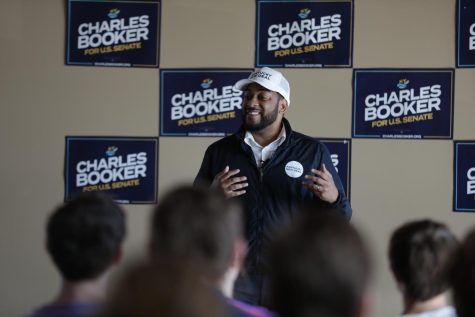
“He believes that no one should die because they don’t have money to pay for life-saving medication a conviction that he gained from being in the position of choosing between buying groceries for the week or refreshing his supply of insulin,” Booker’s website states.
He has also taken a hard stance on public education, hoping to offer universal childcare, free college and support student debt cancellation, something President Biden began earlier this year.
“In the wealthiest country on earth, teachers should not have to dip into their own bank accounts to pay for supplies,” Booker’s website states. “Families should not have to pay thousands of dollars for childcare, and students should not have to go into extreme debt to access higher education.”
Lastly, among the numerous issues listed on his website is his support for a Universal Basic Income, a solution to the high poverty rates seen throughout the Commonwealth.
“Kentuckians helped build this country,” according to the website. “Yet one out of every five residents in Kentucky live in poverty, and too many Kentuckians are trapped in low-wage jobs that don’t provide enough to meet their basic needs. As a result, Kentucky is home to five of the top 10 poorest counties in the U.S., and has a higher poverty rate than 47 other states in the nation.”
This, Booker says, can help end generational poverty and serve as an economic “lifeline” to struggling families.
Paul and Booker will face off on Nov. 8. Paul is favored to win the election with Paul polling above Booker by 6%, according to a Mason-Dixon Polling and Strategy poll.
The Kentucky Senate election, and the Commonwealth, are deemed to be safely Republican, according to Race to the WH. Though, according to the same poll, the Democrats are projected to hold on to the chamber over Republicans 62.63% to 37.37%.
Administration reporter Michael Crimmins can be reached at [email protected].

